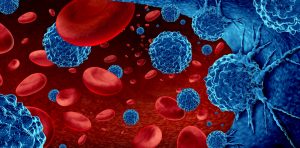Google’s Calico takes first steps into research
pharmafile | September 12, 2014 | News story | Medical Communications, Sales and Marketing | AbbVie, P7C3, Parkinson's, Parkinson’s, calico, depression, google, motor neurone disease
Google is finally shifting into gear within the health arena as it signs its first research deal to develop a new set of compounds for its biotech firm Calico.
The healthcare-focussed offshoot of the tech giant’s main business was established exactly one year ago, but not until this month has it had a clear strategy or any external partnerships.
But that all changed at the beginning of September when it signed a deal potentially worth $1.5 billion with fellow US firm AbbVie to help discover new drug treatments for ageing.
And today Calico (the Californian Life Company) has signed its first licensing deal gaining development rights to protective P7C3 compounds. In animal studies, P7C3 has shown that it can guard against Parkinson’s disease, motor neuron disease and depression.
And new data released this week also reported that the P7C3 drugs may be promising as a therapy for concussion, whilst potentially in addition having an effect on healing stroke damage.
These compounds had been out-licensed by UT Southwestern, a part of the University of Texas in the US, earlier this year to a company called 2M. Calico says it plans to set up labs in the Dallas, Texas area to support its development programme and will work with both 2M and UT Southwestern.
Dr Steven McKnight, chairman of the biochemistry department at UT Southwestern, says: “We are excited to join forces with Art Levinson [the chief executive of Calico and chairman of Apple], whom I have known and admired for over 25 years, and the Calico team to advance our scientific discoveries toward clinical and commercial objectives.”
Although a good first step for the firm, these investigational treatments are still at a very early stage, and are at a high risk of not making it to the final stages of the R&D process, something which takes on average around 12 years and a $1.5 billion investment.
Calico will have an edge over most early-stage biotech firms – mainly in the shape of backing from one of the world’s biggest and most profitable companies – but both Calico and Google will face a series of tough uphill battles to get its first treatment to market.
It will also have to traverse the complex and onerous regulatory system inherent in drug development, something that Google has not had to face in the technology world.
The US firm has already bemoaned the difficulty of healthcare regulation earlier this year and indicated it may not be willing to enter into this market – but the new deals signed this month have done much to show Google’s hand.
Ben Adams
Related Content

Alto Neuroscience announces new patent for depression treatment
Alto Neuroscience, a clinical-stage biopharmaceutical company specialising in precision treatments for neuropsychiatric conditions, has announced …

Study finds at-home brain stimulation therapies reduce depression relapse rate
A new study published in the Journal of Affective Disorders has found that home-based, transcranial, …

Genmab to submit FDA application for lymphoma therapy
Global biotechnology company Genmab plans to submit a supplemental Biologics License Application (sBLA) to the …






